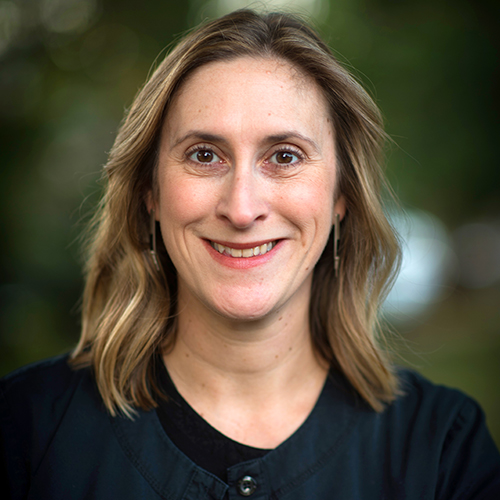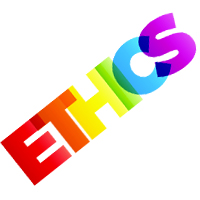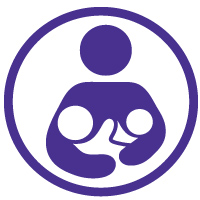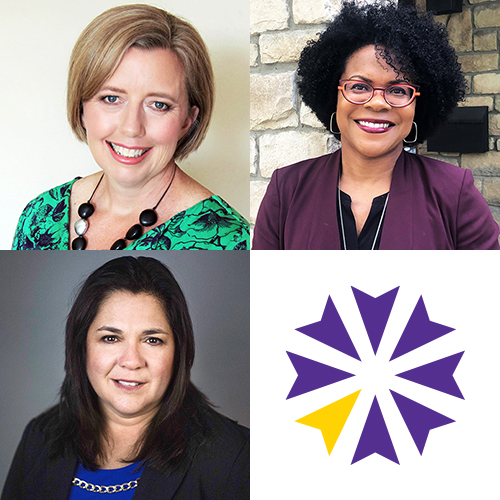 IBCLC Detailed Content Outline: Clinical Skills / Ethical and Legal Issues Focused CERPs - Section VII C
IBCLC Detailed Content Outline: Clinical Skills / Ethical and Legal Issues Focused CERPs - Section VII C
Access CERPs on Clinical Skills / Ethical and Legal Issues for the IBCLC Detailed Content Outline recertification requirements. On-demand viewing of the latest Clinical Skills / Ethical and Legal Issues focused IBCLC CERPs at your own pace.

A Case Study Approach to Critical Thinking Skills for Lactation Professionals

Melissa Cole, MS, IBCLC, RLC is a board certified lactation consultant, neonatal oral-motor assessment professional, and clinical herbalist in private practice. Melissa has been passionate about providing comprehensive, holistic lactation support and improving the level of clinical lactation skills for health professionals. She enjoys teaching, researching and writing about wellness and lactation-related topics. Melissa holds a bachelor of science degree in maternal child health and lactation consulting and her master’s work is in therapeutic, clinical herbalism. Melissa actively conducts research and collaborates with several lactation and health care professional associations. Before pursuing her current path, Melissa’s background was in education and cultural arts, which has served her well in her work as a lactation consultant and healthcare educator. She loves living, working and playing in the beautiful Pacific Northwest with her 3 children.
Topic: Beyond Fenugreek: An Individualized Approach to Dietary and Herbal Galactagogues - [View Abstract]
Topic: Beyond the Basics of Latch: Support Strategies for Helping Babies when the Basics Aren’t Enough - [View Abstract]
Topic: Common Infant Digestive Health Concerns and Useful Support Strategies - [View Abstract]
Topic: Connection and Care: Virtual Support for Tongue-Tied Infants - [View Abstract]
Topic: Feeding is Movement: Activities for Supporting Optimal Infant Oral Function - [View Abstract]
Topic: Infant Gut Health: Common Concerns and Useful Support Strategies - [View Abstract]
Topic: Infant Oral Assessment: Exploring Anatomy and Function Beyond the Frenulum - [View Abstract]
Topic: Low Milk Production Detective Work: Assessment and Care Plan Considerations - [View Abstract]
Topic: Nature’s Nurturers: Plant Medicine for Perinatal Mental Health - [View Abstract]
Topic: New Thoughts on Infant Pre and Post-Frenotomy Care - [View Abstract]
Topic: Placenta Medicine as a Galactogogue: Tradition or Trend? - [View Abstract]
Topic: Thinking Critically About the Use of Clinical Lactation Tools - [View Abstract]
Topic: Will It Hurt? Frenotomy Aftercare Strategies to Optimize Healing Outcomes for the Newborn - [View Abstract]
There are many reasons infants struggle to latch and feed well. Critically thinking through a case involves assessing all the variables that may be impacting feedings. This is no easy task when we must consider what is going on on the parent's side and the infant's side. How can we put all the pieces of a complex case together in order to be an effective lactation detective? This interactive session is designed to help providers implement critical thinking skills in order to think outside the box when it comes to difficult cases. Walk through the cases with me and put your skills to the test!
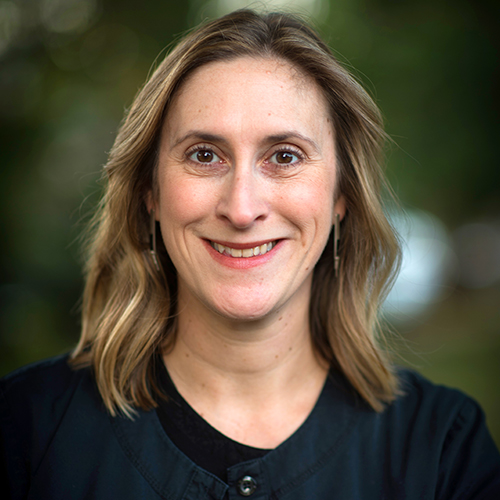
View Details / Enroll
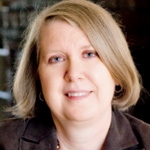

Nancy Mohrbacher was born and raised in the Chicago area, where she lives today. She is a board-certified lactation consultant who has been helping nursing mothers since 1982. Her breastfeeding books for parents and professionals include Breastfeeding Answers Made Simple and its Pocket Guide; Breastfeeding Made Simple(with Kathleen Kendall-Tackett); Working and Breastfeeding Made Simple; and Breastfeeding Solutions and its companion app for Android and iPhone.
Nancy currently contracts with hospitals to improve breastfeeding practices, writes for many publications, and speaks at events around the world. Nancy was in the first group of 16 to be honored for her lifetime contributions to breastfeeding with the designation FILCA, Fellow of the International Lactation Consultant Association.
Topic: Applying Bioethics to Milk Banking and Milk Sharing - [View Abstract]
Topic: Concerns About Low Milk Production - [View Abstract]
Topic: Transitioning the Preterm Infant to the Breast - [View Abstract]
Topic: Using Gravity-Assisted Positions to Prevent Early Breastfeeding Problems - [View Abstract]
Topic: What Mothers Need to Exclusively Breastfeed - [View Abstract]
Topic: What's New In Lactation - [View Abstract]
This session provides a summary of the 7 universal principles of bioethics and examples of how they apply to milk banking and milk sharing. It also offers an analysis of the evidence that supports the use of pasteurized donor human milk with preterm babies and examines the range of milk-sharing options and the ethical and practical considerations for parents and breastfeeding supporters.


Marsha is a registered nurse and international board certified lactation consultant. She has been assisting breastfeeding families in hospital, clinic, and home settings since 1976. Marsha is the executive director of the National Alliance for Breastfeeding Advocacy: Research, Education, and Legal Branch (NABA REAL). As such, she advocates for breastfeeding at the state and federal levels. She served as a vice president of the International Lactation Consultant Association (ILCA) from 1990-1994 and in 1999 as president of ILCA. She is a board member of the Massachusetts Breastfeeding Coalition, the US Lactation Consultant Association, and Baby Friendly USA, USLCA’s representative to the USDA’s Breastfeeding Promotion Consortium, and NABA REAL’s representative to the US Breastfeeding Committee. Marsha is an international speaker, and an author of numerous publications including ones on the hazards of infant formula use, Code issues in the US, and Breastfeeding Management for the Clinician: Using the Evidence.
Topic: Nipple Nuances: From Pain to Peppermint and What the Textbooks Don't Cover - [View Abstract]
Medical ethics is a foundation of clinical practice. While we all strive to practice in an ethical manner, there are a number of situations and issues that arise which may challenge our ethical principles. This presentation explores the application of medical ethics to clinical lactation practice.
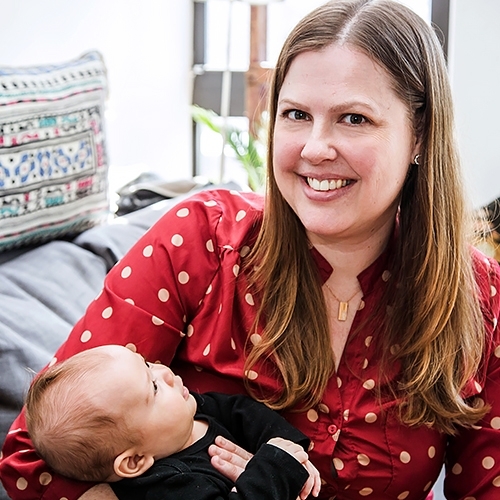

Annie Frisbie has been an IBCLC in private practice since 2011. Her background is in media, where she worked very closely with producers, content developers, and tech thought leaders on business strategy, content development, contracts, legal clearances, and more. She has also produced training for professional media software solutions as well as created and managed print and video content for media professionals.
In 2018 she was honored with the US Lactation Consultant Association's President's Award, "awarding those that demonstrate extraordinary service to the association and profession."
She is a produced screenwriter and proud member of the Writers Guild of America, East. She have a BA from Franklin and Marshall College, and an MA in Cinema Studies from New York University. In a previous life I was a film critic. I live with my husband and our two children in Queens, New York.
Topic: The Ethics of Digital Privacy and Lactation Practice - [View Abstract]
Follow the complete life cycle of a typical client through collecting information during the intake process, documenting and charting effectively and efficiently, and communicating with families and their care providers. Bring your questions about incorporating technology while protecting client/patient privacy and providing compassionate care so families can meet their goals.
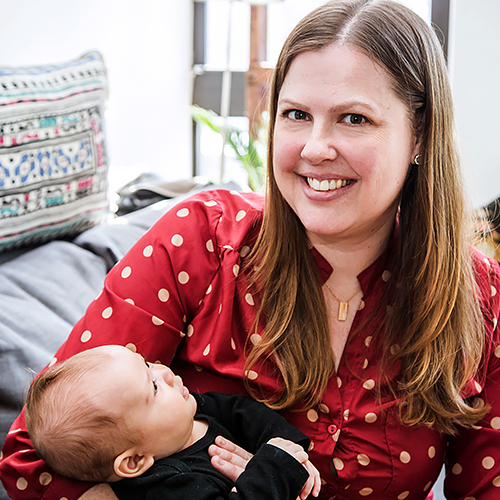
View Details / Enroll

Avoid Lawsuits and Pink Slips! Legal and Ethical Issues for the IBCLC

Liz Brooks is a private practice International Board Certified Lactation Consultant (IBCLC) and licensed lawyer, with expertise in criminal, administrative, non-profit, ethics, and lactation-related law. Liz offers in-home lactation consultations, and bedside care and teaching in two Baby-Friendly-designated hospitals.
She has been a leader in organizations for IBCLCs, breastfeeding promotion, and non-profit human milk banking. She authored the only textbook on legal and ethical issues for the IBCLC, and writes on health care ethics, equity, and conflict-of-interest in several books, blogs, and peer-reviewed journals.
She is a popular international conference speaker, offering practical tips with wit and wisdom for anyone who works with lactating and human milk-using families. Liz self-identifies as a cisgender hetero white woman with unearned privilege, and uses she/her/hers pronouns.
Topic: Using a Cool Head When You’re on the Hot Seat: Ethical and Legal Topics That Make Us Sweat, and How to Avoid Getting Burned - [View Abstract]
Topic: What’s Too “Friendly” for an IBCLC on Social Media? - [View Abstract]
Topic: Whiners and Deniers: Ethics and Diplomacy in Difficult Cases - [View Abstract]
This presentation is a first of its kind: a "survey course" of legal and ethical tensions unique to the IBCLC. Regardless of one’s other professional licenses or credentials, there are four primary practice-guiding documents for the IBCLC. After a review of those “rules of the road,” we’ll navigate a simple algorithm the IBCLC can use to determine what she could, should or must do, in any situation that sets off ethical red flags in the IBCLC’s mind. Then, we’ll hit highlights of legal and ethical issues for the IBCLC: certification vs. licensure vs. certificates-for-classes-and-courses; who is the patient/client?; conflicts of interest (and tensions from “wearing many hats”); intellectual property law; the (WHO) International Code; the IBCLC in the courtroom (as expert or witness); the IBCLC on the Internet; the IBCLC as breastfeeding advocate, and its corollary: the IBCLC as advocate for a breastfeeding mother.
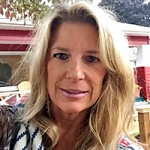

Dr. Rice has been working at the intersection of education and health for social justice and public good. She is the former Executive Director of the Breastfeeding Coalition of Oregon. Currently, Dr. Rice works on organizational development, communication, marketing, public policy and community engagement to advance health equity through access to donor human milk. A national thought leader, she is deeply engaged in convening conversations about the importance of maintaining women’s biological integrity, advancing feminist approaches to human milk banking and at the same time, encouraging capacity building for human milk derived therapies improving health outcomes for the most vulnerable babies.
Most recently Dr. Rice provided consulting as a Policy Associate with Mothers' Milk Bank of San Jose and has provided strategy and policy consulting for the Human Milk Banking Association of North America (HMBANA). Marion holds a doctorate in Education Leadership and is an Internationally Board Certified Lactation Consultant, IBCLC.
This session will look at how for profit corporations are seeking to aggregate, control and exploit human milk. In the absence of federal health policy and consumer regulation/protection, companies are emerging seeking to build commercial markets for human milk often under the guise of improving the economic status of women and infant health.
We will examine companies currently paying for milk both domestically and internationally and the implications for women and emerging policy both at the federal and state level.
Entities setting a price for human milk in the absence of supportive public policy may in fact undermine women’s biological integrity, infant health and contribute to the vulnerability of women and babies.
I will ask participants to consider the issues and to support models of community engagement and decision making that are women centered and women led that keep this biologically critical substance within the community from where it comes; supporting breastfeeding and benefiting women and babies.


Paulina is the mother of three multicultural Latino children and Project Director for Lifespan Local. Paulina earned her BS in Psychology from the Pennsylvania State University, a MS in Organizational leadership from the University of Denver and is completing her PhD in Health and Behavioral Sciences at the University of Colorado - Denver. Paulina has over 18 years of experience working with families with young children. As a Maternal Child Health specialist for Jefferson County Public Health, she developed a NICU follow-up home visitation program and the pediatric emergency preparedness plan, co-founded and coordinated the Conectando Network (former Adelante Jeffco), established community navigation and lactation support groups focused on the Latino Spanish speaking community, and lead other initiatives to support leadership and partnerships among communities and organizations. During the COVID-19 pandemic, she managed the new program Whole Community Inclusion to ensure the pandemic response and recovery implementation included health equity practices that recognize the needs and the strengths of priority populations in the county. Her areas of current work include promoting perinatal and infant mental health along the continuum of care; building community capacity to navigate health and education systems; facilitating organizational change to embrace linguistic and culturally responsive practices; and establishing community-placed participatory programs to strengthen communities. She likes to be with people, learn from and with others, and connect passions for meaningful work.
Topic: From the NICU to the home: mother’s experiences - [View Abstract]
Topic: Leadership Skills in Lactation: Make Extraordinary Things Happen - [View Abstract]
Topic: Liderazgo en Lactancia - Para Alcanzar Metas Extraordinarias - [View Abstract]
Topic: Nursing A Preemie, Perspectives For Lactation Supporters and Professionals - [View Abstract]
Breast/chest feeding is a biological, emotional, and social process. There is an undeniable link between human
milk and behaviors associated with feeding. Breast or chest feeding provide the perfect environment for babies’
development, such as bonding, attachment, mutual regulation, security, etc. But what happens when parents
can’t access effective, culturally competent, compassionate lactation services? What happens when over
generations lactation support has been lacking?
Every parent deserves the chance to meet their feeding goals and enjoy the short and long term benefits of
human milk feeding. Social inequities augment the effects of not experiencing those benefits making it even
harder for parents and babies to have their physical, emotional and social needs met. Outcomes of lactation
impact the dyad, the family, the community beyond the nutritional needs of the infant.
Advocacy efforts at local, regional and national levels create meaningful opportunities for health equity, so
those with no power or resources can reach optimal health. Lactation consultants are in a unique position to
advocate and partner with others to support policies and programs that focus on equity as a systems approach
to benefit marginalized communities and impact their physical and mental health in the long-term.

View Details / Enroll
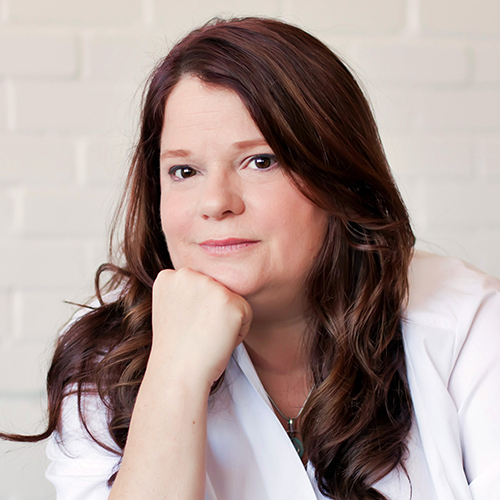

Barbara D. Robertson, IBCLC, has been involved in education for over 34 years. She received a Bachelor’s degree in Elementary Education in 1988 and her Master’s in Education in 1995. Barbara left teaching elementary students in 1995 to raise her two children. Barbara is now the Director of The Breastfeeding Center of Ann Arbor and of the brand new business LactaLearning.
The Breastfeeding Center of Ann Arbor will still continue to serve breast/chestfeeding families and now LactaLearning will be dedicated to all of Barbara’s professional lactation trainings. Barbara has developed two 95 hour professional lactation training, a group training and a completely self study training with Nancy Mohrbacher. Barbara’s idea of creating professional book groups has exploded with her hosting Making More Milk with Lisa Marasco, Supporting Sucking Skills with Cathy Watson Genna, Breastfeeding Answers, 2nd Edition with Nancy Mohrbacher, and new for the fall, Safe Infant Sleep with Dr. James McKenna. Barbara will be hosting a one day online conference in the fall with Lisa Marasco and Cathy Watson Genna using all of her tech savvy skills to make this a one of a kind experience. Barbara is also a speaker for hire on a wide variety of topics including Motivational Interviewing. Barbara volunteered for the United States Lactation Consultation Association as the Director of Professional Development for 4.5 years.
She just retired as Associate Editor for Clinical Lactation, a journal she helped create for USLCA. Barbara has free podcasts, a blog, and Youtube videos which can all be found on her websites lactalearning.com and bfcaa.com. She has written many articles as well. She loves working with parents and babies, helping them with breast/chestfeeding problems in whatever way she can.
Topic: Breastfeeding: Baby’s First Milestone - [View Abstract]
Topic: Clinical Assessment and Management of Low Milk Production - [View Abstract]
Topic: Deconstructing Online Messaging: Ethical Considerations - [View Abstract]
Topic: Milk Sharing and Milk Banking: Building Knowledge for Better Outcomes - [View Abstract]
Topic: The Baby's Not Gaining Weight! Now What? - [View Abstract]
Topic: The Great Nipple Shield Debate - [View Abstract]
If it is on the internet, it must be true! Not. Online media may present as an entertainment video but really be a commercial for a product. A publication can appear to a research article but actually be an opinion blog. We will identify ways in which businesses try to manipulate the viewer. Underlying messages will be decoded using the values of biomedical ethics and marketing techniques. Online breastfeeding media will be analyzed through the lens of biomedical ethics to uncover their true meaning.
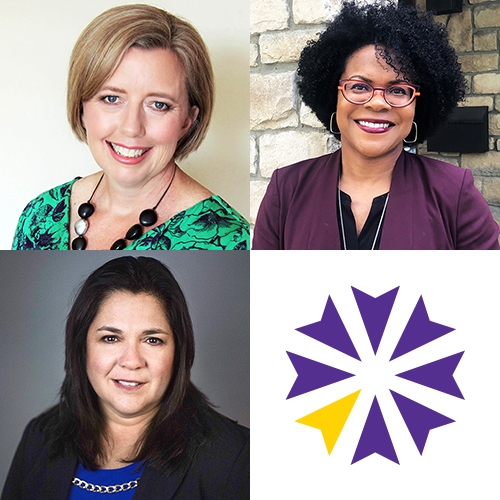

Annette Leary is a registered nurse with over 33 years of experience working in Maternal Child Health. She became an IBCLC In 1995. She works as a Maternal Educator in a large tertiary care hospital (14,000 deliveries a year) that is Magnet designated, JCAHO certified, and BFHI awarded. Her responsibilities include providing outpatient lactation virtual and in-person support, staff education, and inpatient consultations. She began her Upledger Craniosacral training in 2015, taking advanced maternal and pediatric specialty classes. Her most special efforts to date include her marriage of over 33 years, four adult children and being nana to two grandchildren.
Naomi Hull as a Registered Nurse, an International Board-Certified Lactation Consultant (IBCLC) and has a Master of Public Health (Nutrition). Naomi is mum to two teenage young adults, a Rhodesian Ridgeback and three chickens. Since 2006 Naomi has been a volunteer Breastfeeding Counsellor (Cert IV Breastfeeding Education) with the Australian Breastfeeding Association, and she qualified as an IBCLC in 2010 and has worked in a small Private Practice in Brisbane. While completing her MPH at the University of Queensland (UQ) she focused her dissertation on a qualitative review of stakeholder’s perceptions of the implementation of the Australian National Breastfeeding Strategy (2010-2015). Since then she has gone on to lead and coordinate a national team in the assessment of Australian breastfeeding policies and programs using the World Breastfeeding Trends Initiative (WBTi) Assessment Tool. Naomi is the Senior Manager for Breastfeeding Information and Research at the Australian Breastfeeding Association, where she is responsible for the provision of up to date, evidence-based information for the general community and health professionals.
Maxine Scringer-Wilkes graduated with a nursing degree followed later on by her Master of Nursing in 2017 both from the University of Calgary. Maxine was a public health nurse in Calgary for 13 years, where providing face to face contacts with new families soon after discharge is a standard of care. Most families named feeding challenges as their biggest concern. In turn, Maxine developed a passion for lactation support, worked towards and attained the International Board-Certified Lactation Consultant designation, in order to assist families to reach their feeding goals.
In 2016, Maxine made the transition from public health to acute care where she currently works in all areas of a large Children’s hospital to support dyads with a myriad of lactation concerns but is primarily in the NICU. Maxine’s responsibilities includes orienting new staff to teaching a provincial lactation education within a team. Maxine is passionate about sharing knowledge with aspiring LCs and is a mentor to many. Maxine participates on numerous committees to update lactation and feeding policies, procedures and documents. Furthermore, she volunteers on provincial and national breastfeeding committees.
The past decade has seen a marked increase in telehealth. Lactation support in a virtual format had been slowly increasing virtual access to care prior to COVID-19. As the pandemic started, in a matter of weeks, it became necessary to embark on virtual care for the majority of lactation support and care providers were forced to adapt to a new method of care. This sudden change has highlighted both the benefits and drawbacks of virtual lactation support. The learning curve continues and this panel has been designed to explore the lessons, the triumphs, the challenges, and the future needs for virtual lactation care.
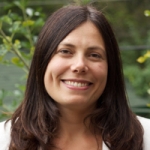

Robyn Lee is an Assistant Professor in Sociology at the University of Alberta. Previously, she was visiting scholar at the Brocher Foundation (Geneva, Switzerland) and a Banting Postdoctoral Fellow at Brock University. She holds a PhD in Social and Political Thought from York University. Her research interests include contemporary social theory, gender, sexuality, care work, and embodiment. She is the author of The Ethics and Politics of Breastfeeding: Power, Pleasure, Poetics, published by University of Toronto Press (2018) and has published articles in journals including Feminist Theory, Hypatia, Gender, Work, and Organization, and Family Theory and Review.
This presentation will explore some contemporary ethical issues in breastfeeding, situating them in social contexts. Issues to be explored will include social responsibilities vs individual responsibilities, social disparities and inequalities, and gender identity/expression.



